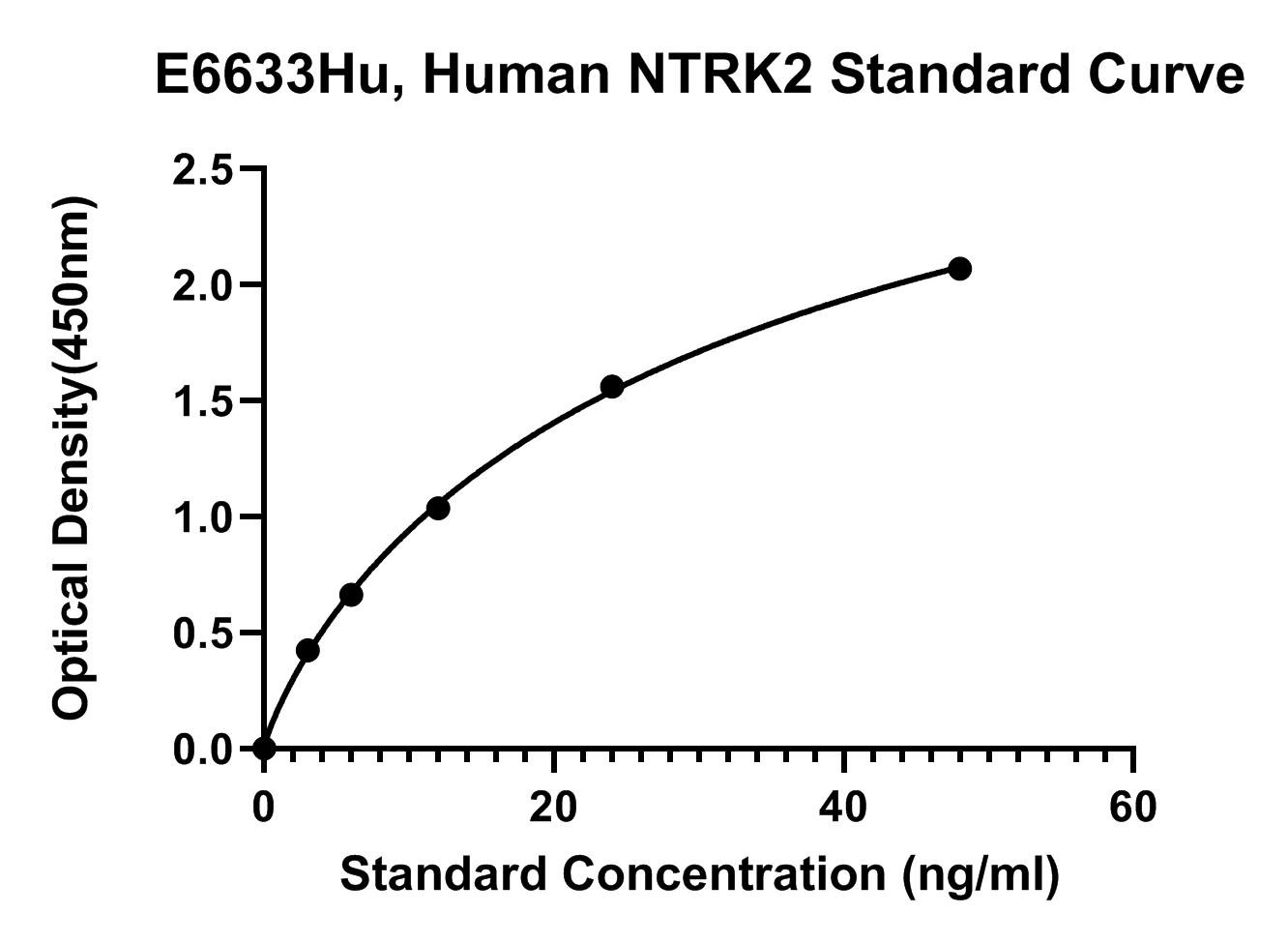E6633Hu
Human Bdnf/Nt-3 Growth Factors Receptor, NTRK2 ELISA Kit
Bioassay Technology Laboratory
DESCRIPTION
Receptor tyrosine kinase involved in the development and the maturation of the central and the peripheral nervous systems through regulation of neuron survival, proliferation, migration, differentiation, and synapse formation and plasticity (By similarity).
Receptor for BDNF/brain-derived neurotrophic factor and NTF4/neurotrophin-4. Alternatively can also bind NTF3/neurotrophin-3 which is less efficient in activating the receptor but regulates neuron survival through NTRK2 (PubMed:7574684, PubMed:15494731).
Upon ligand-binding, undergoes homodimerization, autophosphorylation and activation (PubMed:15494731).
Recruits, phosphorylates and/or activates several downstream effectors including SHC1, FRS2, SH2B1, SH2B2 and PLCG1 that regulate distinct overlapping signaling cascades. Through SHC1, FRS2, SH2B1, SH2B2 activates the GRB2-Ras-MAPK cascade that regulates for instance neuronal differentiation including neurite outgrowth. Through the same effectors controls the Ras-PI3 kinase-AKT1 signaling cascade that mainly regulates growth and survival. Through PLCG1 and the downstream protein kinase C-regulated pathways controls synaptic plasticity. Thereby, plays a role in learning and memory by regulating both short term synaptic function and long-term potentiation. PLCG1 also leads to NF-Kappa-B activation and the transcription of genes involved in cell survival. Hence, it is able to suppress anoikis, the apoptosis resulting from loss of cell-matrix interactions. May also play a role in neutrophin-dependent calcium signaling in glial cells and mediate communication between neurons and glia.
DETAILS
- Gene Id: 4915
- Uniprot: Q16620
- Lead Time: 3 days
- Assay Type: Sandwich
- Sample Type: Serum, plasma, cell culture supernates
- Sensitivity: 0.13ng/ml
- Detection Range: 0.3-90ng/ml
- Detection Method: ELISA
- Species Reactivity: Human
